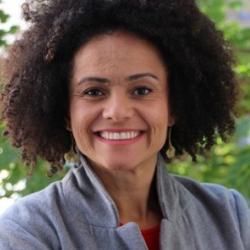Biography
Livia was awarded a Science without Borders scholarship to develop her PhD at the University of Cambridge under the supervision of Prof. Abir Al-Tabbaa. Her research looked at microfluidics to produce microcapsules for self-healing in cementitious materials. This research was also supported by the Materials for Life (M4L) project funded by EPSRC in 2013, looking at biomimetic multi-scale damage immunity for construction materials. Currently, Livia's work as a research assistant focuses on using microfluidics to investigate the microencapsulation of different liquid healing agents. Based on this, she also explores the synergy between core and shell materials to promote self-healing, mainly focusing on chemical and physical triggering. Her work is within the Resilient Materials 4 Life (RM4L), a project aiming at creating materials that will adapt to their environment, develop immunity to harmful actions, self-diagnose the on-set of deterioration and self-heal when damaged. Before Cambridge, Livia obtained a B.Sc. in Chemistry (UFMG, Brazil) and an M.Sc. in Mineral Science and Technology (CDTN, Brazil). Her B.Sc. dissertation involved the synthesis and characterization of carbon nanofibers supported in CaO. This work took place in the laboratory of Catalysis & Environmental Chemistry and her thesis was awarded the maximum score of 100/100. During the M.Sc., Livia investigated the metal contamination in river and lake sediments nearby a former uranium mine affected by acid mine drainage. With the support of INCT-Acqua, she visited the Department of Catchment Hydrology (UFZ-Halle, Germany) to perform sulphur isotopic analyses of the sediments.
Research
Self-healing cementitious materials
Publications
Li, Z., Souza, L. R., Litina, C., Makarki, A., Al-Tabbaa, A. (2019) 3D printed sacrificial networks for vascular based self-healing in cementitious materials. Materials, 2019
CAO, B., SOUZA, L.R., & AL-TABBA, A. (2019) Microencapsulated sodium silicate for self-healing cement-based in-ground barriers. Proceedings of the XVII ECSMGE-2019
AL-TABBA, A., LITINA, C., GIANNAROS, P., KANELLOPOULOS, A., SOUZA, L. (2019). First UK field application and performance of microcapsule-based self-healing concrete. Constr. Build. Mat. 208, 669–685. https://doi.org/10.1016/j.conbuildmat.2019.02.178
SOUZA, L.R., AL-TABBAA, A., ROSSI, D. (2019) Taking a microfluidic approach to the production of self-healing construction materials. Metal Powder Report, 74, 121-125. https://doi.org/10.1016/j.mprp.2019.01.001
SOUZA, L., & AL-TABBAA, A. (2018). Microfluidic fabrication of microcapsules tailored for self-healing in cementitious materials. Construction and Building Materials, 184, 713–722. https://doi.org/10.1016/J.CONBUILDMAT.2018.07.005
RIBEIRO DE SOUZA, L. Design and Synthesis of Microcapsules Using Microfluidics for Autonomic Self-Healing in Cementitious Materials (Doctoral thesis) University of Cambridge (2017), 10.17863/CAM.16673
SOUZA, L. R.; KNÖLLER, K.; LADEIRA, A. C. Q. Sulfur isotope fractionation and sequential extraction to assess metal contamination on lake and river sediments. Journal of Soils and Sediments, p. 1-9, 2016. https://doi.org/10.1007/s11368-016-1410-9
SOUZA, L.R.; KANELLOPOULOS, A.; AL-TABBAA, A. Synthesis and characterization of acrylate microcapsules using microfluidics for self-healing in cementitious materials. In V International Conference on Self-healing Materials, 2015, NC, United States. https://goo.gl/ijPRFC
SOUZA, L. R. ; LADEIRA, A. C. Q. Investigation into River Sediments Toxicity as a Result of Inappropriate Waste Disposal. Journal of Waste Management, v. 2013, p. 1-7, 2013. http://dx.doi.org/10.1155/2013/825063
ROSMANINHO, M.G., MOURA, F.C.C., SOUZA, L.R., NOGUEIRA, R.K., GOMES, G.M., NASCIMENTO, J.S., PEREIRA, M.C., FABRIS, J.D., ARDISSON, J.D., NAZZARRO, M.S., SAPAG, K., ARAÚJO, M.H., LAGO, R.M. Investigation of iron oxide reduction by ethanol as a potential route to produce hydrogen. Applied Catalysis. B, Environmental, v.115-116, p.45 - 52, 2012. https://doi.org/10.1016/j.apcatb.2011.11.038
ROSMANINHO, M. G., SOUZA, L. R., GOMES, G. M., ZICA, R. F., NASCIMENTO, J. S., PEREIRA, M. C., FABRIS, J. D., ARDISON, J. D., MOURA, F. C. C., LAGO, R. M., ARAUJO, M. H. Supported iron based redox systems for hydrogen production and storage from ethanol. Hyperfine Interactions, V. 195, p. 49-54, 2009. https://doi.org/10.1007/978-3-642-10764-1_

